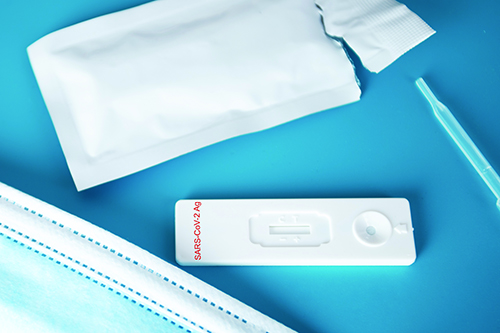
The Food and Drug Administration’s (FDA) use of emergency use authorizations (EUAs) in the early part of the COVID-19 pandemic came at a cost to quality, but the agency’s experience during the pandemic offers lessons the government needs to learn from, according to a report by the Department of Health and Human Services (HHS) Office of Inspector General (OIG).
OIG analyzed data about SARS-CoV-2 EUAs in the first 5 months of the pandemic and found that while FDA’s policies helped tests get to market quickly, these policies also resulted in numerous problematic tests on the market, requiring further action by FDA. For example, an FDA study of 125 EUAs found that more than half had design or validation problems.
Additional issues arose when FDA began allowing tests on the market without EUAs in the spring of 2020, with serology tests posing a particular problem, OIG said. For example, by April 2020, the agency saw a “flood of poorly performing and inappropriately marketed serology tests.” OIG also criticized FDA for lacking “clear and direct” communication with the lab community.
To avoid future problems, OIG issued six core recommendations: assess and revise guidance for test EUA submissions; develop a suite of EUA templates for future emergencies involving novel pathogens; expand the FDA Center for Devices and Radiological Health’s existing device-tracking platform to facilitate EUA submission and monitoring; expand and improve resources for test developers on the EUA process; establish formal communication channels between FDA and the lab community for use in emergencies; and finally, work with federal partners to implement lessons learned about a national testing strategy that goes beyond the EUA process.
National Biodefense Strategy Highlights Diagnostics
The U.S. Department of Health and Human Services (HHS) announced its approach to implementing the administration’s 2022 National Biodefense Strategy. President Biden has requested $82 billion from Congress over 5 years for pandemic preparedness and biodefense.
One area of focus is early warning and awareness of potential pandemics. HHS will invest in expanded ability to conduct rapid genomic sequencing and analysis and support the development of global systems to share information, data, and samples internationally and across industry sectors.
Specifically, HHS wants the government to be able to deploy at least one “pathogen-agnostic” test within 12 hours for thousands of samples on the first day and tens of thousands of samples per day within 1 week, and sufficient pathogen-specific tests within 30 days of a significant biological incident being determined.
Additionally, the plan calls for HHS to enable the development, validation, and production of authorized pathogen-specific, rapid point-of-care tests within 90 days of a significant incident determination.
CMS To Create National Healthcare Directory
The Centers for Medicare and Medicaid Services (CMS) is seeking public input on creating a national directory with information on healthcare providers and services with the goal of spurring electronic health data exchange and resources for patients. The directory would help facilitate care coordination and public health data reporting as well, according to CMS.
The agency noted that patients sometimes struggle to find up-to-date information about providers in their network. Meanwhile, providers face redundant and burdensome reporting requirements to multiple databases. As a result, existing directories often contain inaccurate information, rarely support interoperable data exchange or public health reporting, and are costly to the healthcare industry.
CMS wants the directory to serve as a “centralized data hub” for all healthcare directory and contact information with validated data in a publicly accessible index, developed through streamlined information submission from providers.